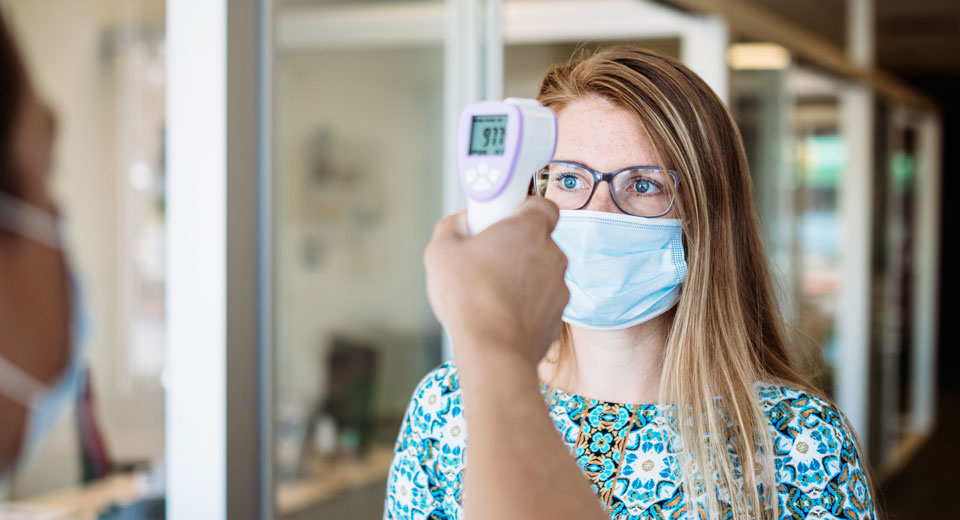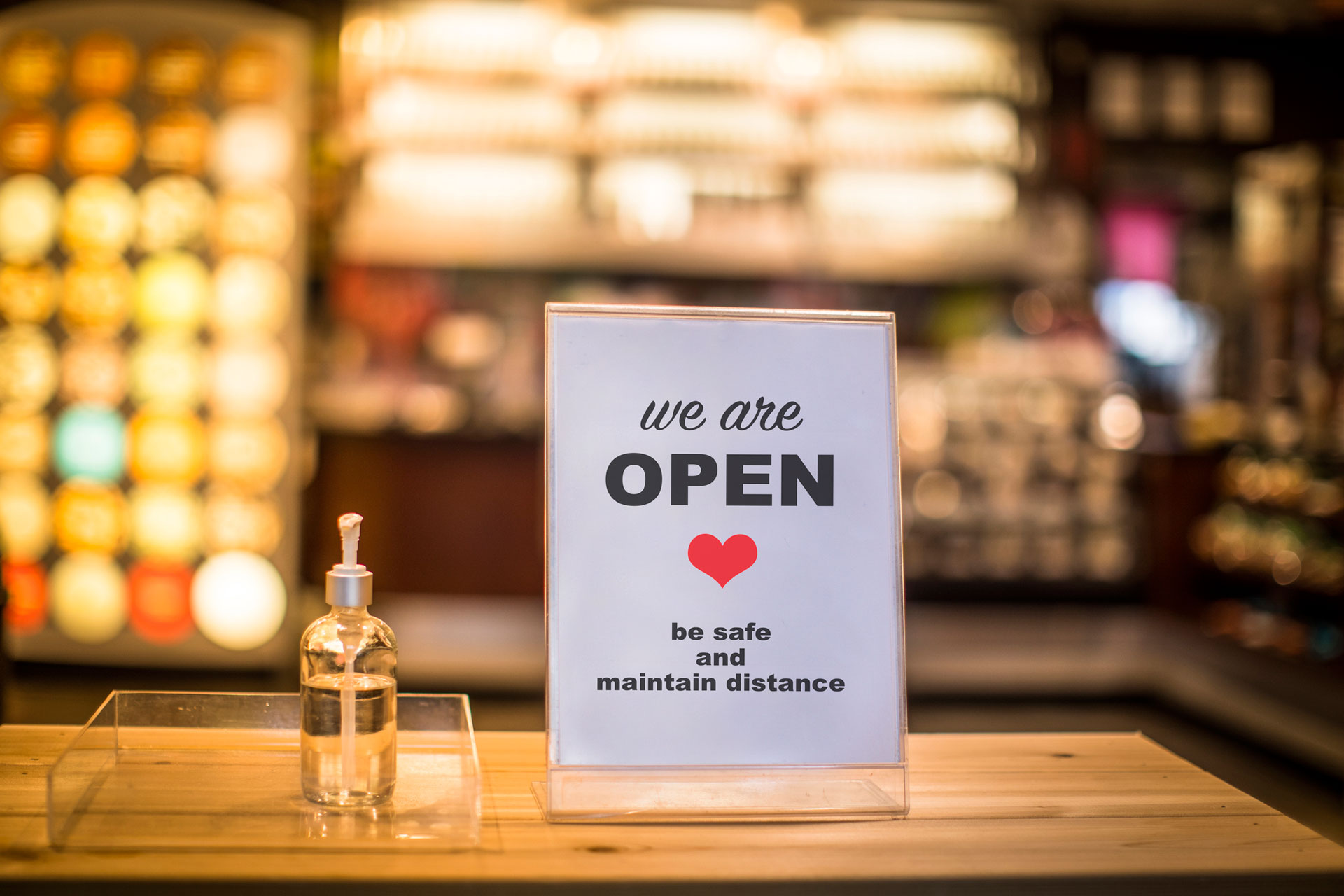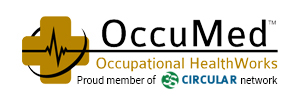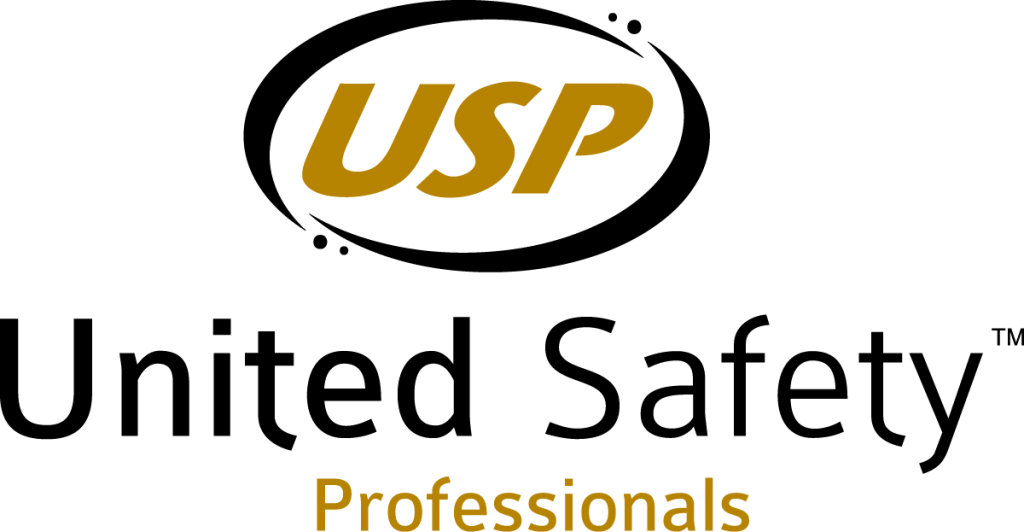As we approach a full year of the COVID-19 pandemic, the world is still adapting to altered ways of life. The global spread of the virus ceased all traditional in-person gatherings of all kinds. Countless companies are still trying to find how they can maneuver this new world and keep business going until the pandemic comes to an end. If your company is struggling to find a way to balance safety with efficiency, you are not alone. The CDC has outlined steps for employers to take to prevent and reduce virus transmission among employees while maintaining healthy business operations and work environments.
Prevent and Reduce Transmission Among Employees
The key to keeping COVID-19 cases low is to limit or eliminate potential transmission between employees. One of the most important things to do is to monitor local, state, and federal guidance, including the CDC website, to make sure you have the most up-to-date and accurate information.
It is important to encourage sick or symptomatic employees to stay home and follow CDC guidelines. Employees should also know other times to stay home, including if they live with someone who tested positive for COVID-19, if they have had a potential exposure, or if they are pre-symptomatic or asymptomatic. Communication is key, so create a way for employees to communicate with management to report these  situations so your company can take the appropriate steps to determine how business may be impacted. Consider creating a flexible paid sick leave to give employees support to protect themselves and others for the duration of the pandemic.
situations so your company can take the appropriate steps to determine how business may be impacted. Consider creating a flexible paid sick leave to give employees support to protect themselves and others for the duration of the pandemic.
If your company requires in-person attendance for operational purposes, consider a daily health screening. These screenings cannot replace current health guidelines, like wearing masks and practicing social distancing, but they can be used in conjunction to create a safer work environment and reduce exposure. Employees should not move past the screening area if they show or have:
- Traditional COVID-19 symptoms
- Signs of a fever, or a fever of 100.4 degrees or higher
- Had a COVID-19 test and are awaiting results
- A recent diagnosis of COVID-19 within the last ten days
- Had close contact with someone with COVID-19 within the last two weeks
Try to figure out where and how your employees could be exposed with COVID-19 in your facilities. A thorough hazard assessment will help you plan what control methods or PPE will help protect your employees. You also should supply any necessary equipment and provide training on how to properly use them. As always, remind employees that they should wear masks and practice social distancing.
Maintain Healthy Business Operations
Consider work-from-home options. Working remotely limits the number of people who come into contact with one another and decrease the chances of transmission. If telework is not feasible and you employ people with higher risks of severe COVID-19 complications, consider

alternate job duties that limit person-to-person contact to protect them as much as possible.
Transparency will help everyone understand how the company is operating during the public health crisis. Provide regular updates, and provide them through multiple methods and in multiple languages, if applicable, so as many employees can utilize them. Reinforce public health guidelines, including reminders to social distance and practice proper hygiene. These may include signs or markings on floors and walls, closing public congregation spaces, and rearranging workspaces. Ensure employees have a way to voice concerns, whether related to COVID-19 or something else, without fears of retribution or judgement.
Planning for other alternatives to combat any sudden changes in business operations is also important. Figure out what is necessary to maintain daily or critical operations. Planning alternate supply chains for necessary goods and services will also prevent potential disruptions. Also plan what to do if attendance issues arise, whether from illness or preventative absences. Know how to continue operations, whether that means working with temporary staffing or reorganizing and redistributing current job duties.
Maintain Healthy Work Environments
Reassess and update your facility’s ventilation system. Opening windows and doors to the outside, as long as this does not create safety risks, and utilizing fans to properly flow fresh air can help prevent potentially contaminated air to spread. Improvements to air filtration systems can also help rid the air of any potential pathogens, not just COVID-19. If major upgrades are not feasible, portable air filtration systems with HEPA filters are good substitutes. Provide tools to promote healthy behaviors by both employees and customers, if applicable. Making hand  sanitizer easily available, providing tissues, soap, and disposable masks, and using no-touch trash cans can help limit potential virus spread. Frequently clean all areas of the workplace, especially high-contact surfaces and areas. If there are any suspected or confirmed COVID-19 cases in your facility, do not wait to act. Clean and disinfect quickly, following the CDC’s cleaning recommendations, and determine the risks to your other employees.
sanitizer easily available, providing tissues, soap, and disposable masks, and using no-touch trash cans can help limit potential virus spread. Frequently clean all areas of the workplace, especially high-contact surfaces and areas. If there are any suspected or confirmed COVID-19 cases in your facility, do not wait to act. Clean and disinfect quickly, following the CDC’s cleaning recommendations, and determine the risks to your other employees.
Limit or eliminate work-related travel. Follow state and federal travel guidelines and restrictions, and minimize all non-essential travel until it is safer to do so. If an employee must travel, analyze the risks of where he or she will be travelling, and follow all protocols both before travel and once the employee returns, including quarantining and testing. Even on a company level, reconsider how meetings are structured, and try to do as much virtual gathering as possible. If a meeting must occur in-person, make sure it is held in a well-ventilated and open space where people can distance themselves from one another.
If you have concerns about your workforce and coronavirus, please contact us today to learn about steps you can take to protect yourself, your family, and your employees. We offer the following COVID-19 safety service options:
COVID-19 Consulting Bundle: Written directive/policy on requirements which can be either a corporate policy or a site-specific policy.
COVID-19 Training (Infection Control Webinar): We offer Open Enrollment Classes and Private Company Sponsored Classes made available at your convenience.
COVID-19 Testing: COVID-19 Testing Services for Colleges, Universities, Private Companies, And Public Agencies are available. We now offer Pick Up/Drop Off COVID-19 Testing at our Canton, MA location.
Source
https://www.cdc.gov/coronavirus/2019-ncov/community/guidance-business-response.html


